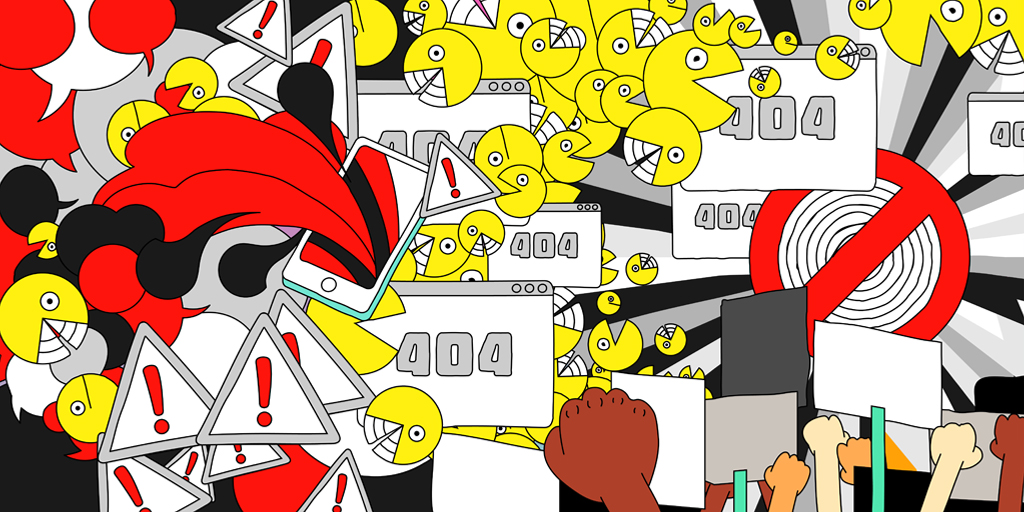UNESCO’s “Internet for Trust” Global Conference kicks off in Paris today, convening thousands of public, private, and civil society representatives – including several Access Now colleagues – to discuss draft guidelines for regulating digital platforms in a rights-respecting way. Our message to fellow delegates: put human rights at the heart of any future platform regulation through transparent, broad, and meaningful consultation with stakeholders in every part of the world.
Multilateral institutions such as UNESCO, in partnership with civil society and other stakeholders, can play an important role in advancing rights-respecting regulatory guidelines so long as they center human rights, reduce risks, and encompass meaningful consultation at the outset. Their efforts so far, however, have missed the mark. The latest draft guidelines under discussion are vague and overly broad in their scope, inconsistent in their approach, and fail to consider the unique needs and expectations of people from the global majority.
To date, UNESCO has released three different sets of draft guidelines. The second set of guidelines (Draft 1.1) was already an improvement on the first, as it shifted away from proposing a regulatory framework and model legislation and toward principles and guidance. However, we still had considerable concerns about its contents, which we flagged to UNESCO in January; notably around how the recommendations could be misinterpreted or misused.
Our main issue with Draft 1.1 of the guidelines related to the lack of engagement with countries in the global majority, which was reflected in the limited language versions of the content (only available in English, French, and eventually Spanish), the lack of reflection on how people in global majority countries – specifically in fragile democracies or authoritarian regimes – are negatively impacted by a push for platform regulation, and a lack of understanding about the impact these guidelines would have in such differing regional contexts. We were also disappointed by limited reference to existing and relevant frameworks on platform transparency and accountability, as well as rights-respecting content governance standards; and the lack of terminology alignment with international human rights standards. Finally, we found that the scope of platforms or content to be covered was undefined, and there was little reference to the need for adequate data protection frameworks.
Draft 2.0 of the guidelines was released barely two weeks ago, but with only a month allowed for comments, which we plan to submit shortly. Our initial impressions of this latest update showed more signs of improvement – clarifications have been made to the terminology, for instance – but we are still worried by the speed at which this initiative is being pushed through.
What UNESCO should do next
First and foremost, UNESCO needs to slow down. Any attempt at regulating online platforms is a vast and complex undertaking, which demands careful consideration and due consultation to properly reflect the very real and serious consequences on people’s human rights, particularly in authoritarian contexts. It isn’t something that can be rushed.
We would also like to see UNESCO take steps to more meaningfully and deliberately engage with all relevant stakeholders, so their perspectives are fully integrated into future draft guidelines. This means:
- Using this week’s Global Conference to refine and improve the process for inputting into future guidance, seeking input from member states, civil society, and the private sector on how to be more transparent and proactive in engaging the most impacted communities.
- Publishing future draft guidelines in all official UN languages, and investing in capacity-building so that comments received in any of those languages are properly considered.
- Prioritizing consultations with civil society and other relevant stakeholders in fragile democracies or authoritarian regimes, and paying special attention to the reality on the ground and potential human rights risks.
- Work with existing bodies and initiatives committed to developing rights-respecting standards for online content regulation, to reinforce the legitimacy of the guidelines and to make sure they advance and support relevant local, regional or national efforts with the same end goal.
Are you attending the UNESCO conference online or in-person, and want to know more about this initiative? Join our hybrid-event taking place today, February 21, in Room VII (and online) from 18:00-20:00 CET. Co-organized with the European Center for Not-Profit Law (ECNL), this interactive workshop for civil society will focus on platforms’ obligation to conduct risk assessments during times of crisis.
